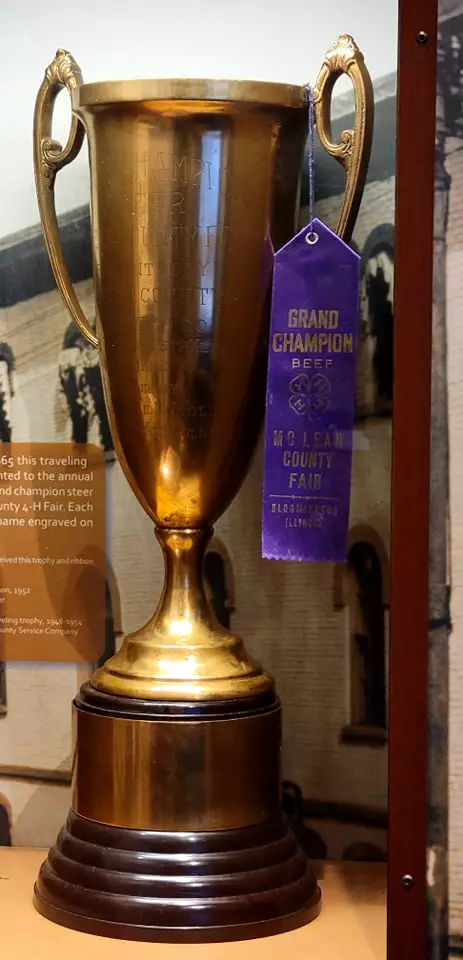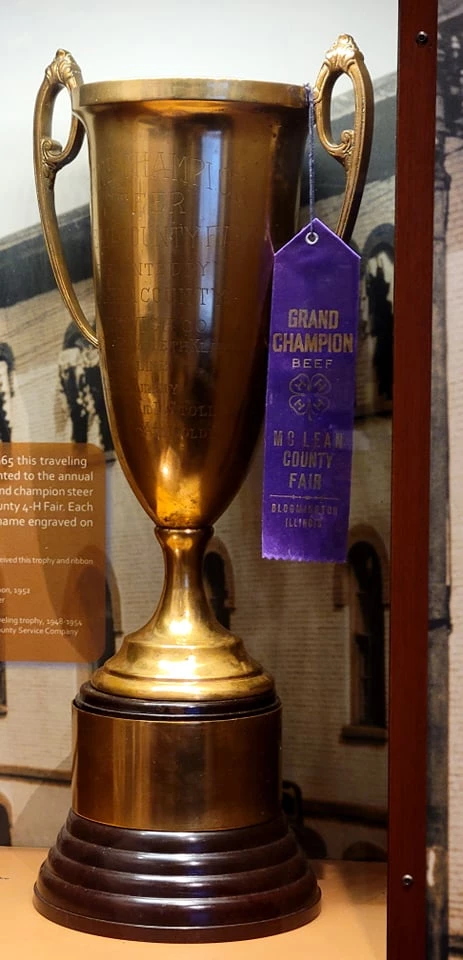Search
Looking for something in particular? Search for it here.
Looking for something in particular? Search for it here.
The McLean County Farm Bureau (MCFB) supported area farmers by supplying insurance, developed cooperative organizations that saved them money, published helpful resources, offered educational programs, and advocated for state and federal programs to help them maintain a living wage.
Interested in cutting the costs of operating tractors, members of the MCFB organized and chartered a supply cooperative. By doing so, they saved themselves thousands of dollars.
The McLean County Service Company purchased tractor fuel at a reduced price, making sure that it was the best quality available for MCFB members. The company soon added other farm necessities to its stocks, including bulk limestone, rock phosphates, and other plant foods — all sold at cost and delivered to the farm.
In 1926 the organization became the McLean County Farm Service.
Dave Thompson, the Bureau’s first adviser, was creative in his endeavors. He rigged up his Model-T so that he could transport a hog demonstration to meetings with McLean County farmers.
The advisor offered educational services and provided farmers with up-close looks at new techniques and equipment as well as opportunities to socialize and network.
Beginning in 1946 Gene Mosbacher spent 37 years in McLean County as Extension Adviser. A community leader and teacher, Mosbacher inspired and assisted generations of McLean County farmers, helping them to adapt and apply new research in order to improve farm efficiency, productivity and profits . His quality programming, dedication to the county, and extension service put in place one of the most respected Extension and 4-H programs in Illinois.
Mosbacher’s three minute farm updates, which aired every morning at 6:25 am, were a daily staple for many WJBC listeners. Some may recall Gene’s unique sign-off, “Good luck, good farming, and have a good day!”
Gridley native Don Meyer continued the strong agricultural Extension presence left behind by Mosbacher and expanded its educational offerings, including computer and technology programs. Meyer also led the efforts to move the 4-H Fair to its new home at the Interstate Center, and reached new urban audiences with horticultural information.
The Master Gardener program was started and an Extension tax levy was passed during his tenure to provide financial stability to the growing program serving both rural and urban audiences.
Meyer retired in August 2010, but continued his role as an agricultural educator by serving as an adjunct lecturer at Illinois State University.
The Farm Bureau made its first home in the Hoopes building on the corner of Center and Monroe streets. The building was also the site of the Farmer’s Market, where members sold surplus produce as well as baked goods.
“I can remember riding to town with [dad] on Saturday—we had butter customers... then of course we went up to the farmers market... we killed two hogs every week and take them up there and sell them. The girls made bread, cakes and all that stuff.”
— Walter Weinheimer, Dry Grove Township,1995
Beginning in 1921 the Farm Bureau’s monthly newsletter informed members of new scientific findings, reported on activities of local farmers and farming organizations, and provided useful information to help farmers be more productive and profitable.
In the early years cartoons were used to help communicate both simple and complex ideas. In this one, from the January 1931 McLean County Farm Bureau News, a hard working farmer who needs help improving his soil is watched by the minerals that can help him to achieve this goal.
The following year they reorganized as a 4-H club and 1,435 McLean County boys and girls enrolled.
Through their child's involvement in 4-H activities, parents of 4-Hers also learned new research-based agricultural practices.
Grand Champion Steer traveling trophy & ribbo, circa 1948

Betty Ann Golden Yoder received this ribbon for her prize steer in 1952. From 1948 to 1965 this traveling trophy was presented to the annual winners of the grand champion steer at the McLean County 4-H Fair. Each winner had their name engraved on the trophy.
Donated by: McLean County Service Company (trophy), Betty Ann Golden Yoder (ribbon)
855.359
